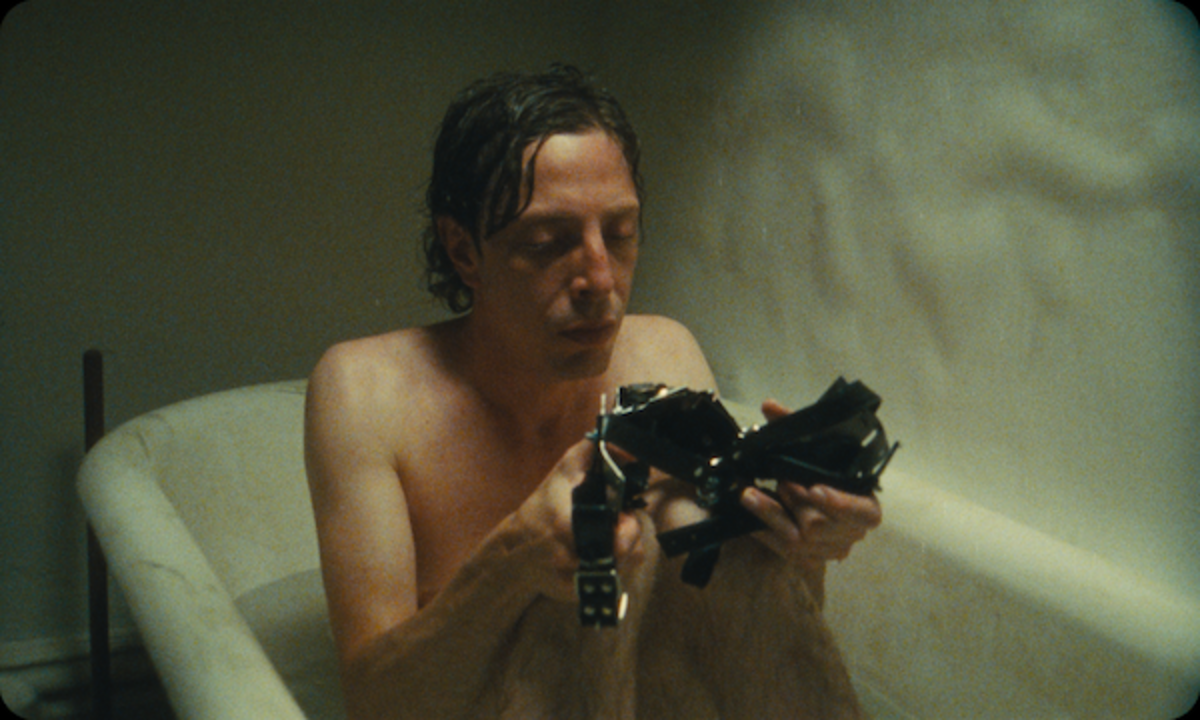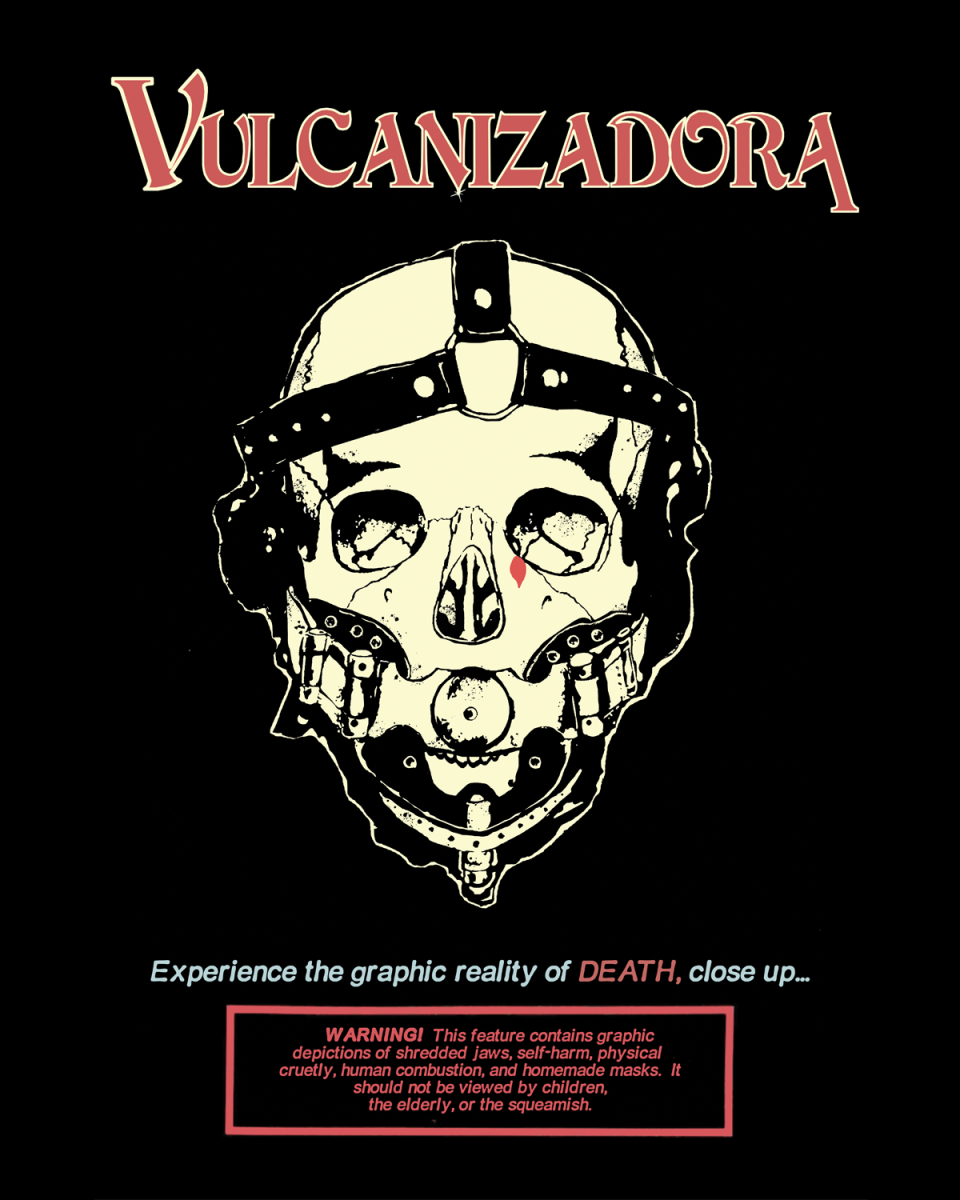For Script Magazine
This dark comedy highlights Potrykus’s distinct vision with a gripping dramatic pulse, and unrelenting tone and atmosphere. Familiar themes in Potrykus’s work emerge again in ‘Vulcanizadora’: nihilism, isolation, loneliness, society-rejected outsider, however this time he digs further, tackling new territory about fatherhood and father/son relationships.
Written, directed, edited, and co-starring Joel Potrykus, Vulcanizadora, centers on two friends who trudge through a Michigan forest with the intention of following through on a disturbing pact. After they fail, one of them must return home to deal with the legal and emotional repercussions.
Joel Potrykus is a Michigan-based independent filmmaker, specializing in screenwriting and guerilla style production. His films have screened internationally and are currently streaming on the Criterion Channel. His screenplays are part of the Academy of Motion Picture Arts & Science Permanent Collection, and the George A. Romero Archival Collection. He received an MFA in Writing for Film and Television from Emerson College and is an assistant professor at Grand Valley State University.
It’s been over ten years since I first met husband and wife team Joel Potrykus and producer Ashley Potrykus at the 2014 Locarno Film Festival where I interviewed them about their award-winning film BUZZARD, starring long-time collaborator Joshua Burge. In 2012, their film APE, which also starred Burge, premiered at the Locarno International Film Festival, taking the Best Emerging Director – Filmmakers of the Present award and a Best First Feature – Special Mention.
Vulcanizadora, Potrykus’s latest feature, world premiered as part of Tribeca’s US Narrative Competition and this time I met with Joel and Ashley Potrykus in New York City now joined by stars Joshua Burge and Solo Potrykus, Joel and Ashley’s 6-year-old son.
This dark comedy highlights Potrykus’s distinct vision with a gripping dramatic pulse, and unrelenting tone and atmosphere. Familiar themes in Potrykus’s work emerge again in Vulcanizadora: nihilism, isolation, loneliness, society-rejected outsider, however this time he digs further, tackling new territory about fatherhood and father/son relationships.

Kouguell: The three of you have been collaborating for a long time along with your filmmaking team Sob Noisse.
Ashley Potrykus: I joined the Sob Noisse band for their first feature and Josh before that with Coyote. When I first joined, film was not my area at all and with each movie, it was another stepping stone and as that happened, our Sob Noisse band got bigger.
Joel Potrykus: At some point, I realized I couldn’t make a movie without Ashley; she’s the other half of my filmmaking brain that keeps everything organized and clears my thoughts.
It is like a band, and we call it Sob Noisse; I look at it like a musician band would be and everyone has the instrument they play. Josh is definitely like the lead singer, he’s the voice of what we’re trying to say and what people should be looking at. He’s got a certain face, persona and rhythm.
Joshua Burge: I never had any intention to be an actor, I went to school to be a filmmaker and to write. I got bit by the music bug while I was there and started performing, and Joel was a fan and then asked if I could be in one of his movies. The first one was Coyote and at that point, I didn’t really understand what acting was, and then with the first feature, Ape, I felt I was part of the Sob Noisse band.
Ashley Potrykus: Ape was the first time, at least for me, and I think for you, Josh, that we felt that we each came into our own role a little bit more.
Joshua Burge: When we started, everyone was wearing all the hats.
Kouguell: This is another low-budget feature for you.
Joel Potrykus: It’s the biggest budget we ever worked with but still a vastly low budget. We shot on 16 mm. I think it’s less rare that these micro-budget features are breaking out and we are now in the norm. We’ve shot on 16mm before but never a feature. We didn’t think it was financially feasible but it is. If you shoot the way we shoot, efficiently and economically and not burning through twenty takes, you can totally do it.
Kouguell: The script definitely does not follow a traditional 3-act structure. Just when I thought the plot was going to turn one way, it shifts. Yet, all these twists and turns are earned; they have been subtly set up. At times it also felt a little improvisational. How scripted was it?
Joshua Burge: It was very scripted. The only exception was sometimes we had an idea before we’d start rolling and we might try another line or an extra tack to bring something home. But for the most part, it was all on the page.
Joel Potrykus: I’ve always wanted to be an improv-style director so I was like, let’s start with an outline, we’ll shoot from an outline, but then it turned into a real script with real dialogue. We didn’t have the luxury to improvise when we were shooting.
Kouguell: How long was the shoot?
Joel Potrykus: We scheduled it for 10 days, which was really bonkers, but somehow we got it done in 8 days.
Ashley Potrykus: And we had a big location move, which was a two-hour drive with all of our gear and our crew, and closing up Airbnb’s within that time frame.
Joel Potrykus: We are a band, we know the rhythm, we know the beat.
Kouguell: How much input on the script did Ashley and Josh have?
Joel Potrykus: I’m a control freak so I wrote on my own. It was about the tone, and I know that Josh knows how to play that tone. We’ll all read it and then talk about it, and I’d take those ideas and incorporate it into a new draft.
Kouguell: In the opening scenes of your film, the music choices set an unsettling yet somewhat comedic tone and atmosphere. Let’s talk about the tone of the film.
Joel Potrykus: The three things Josh and I would say before the film were: “Sad, funny, scary.” We got to hit those.
Kouguell: We’ve been talking about the consequences of the characters’ actions. For Joshua’s character, seeking redemption is complicated and defies expectations for the viewer.
Joel Potrykus: It was the chance to see his character’s guilt and shame and remorse; he’s terrified of that redemption and what that means, and the repercussions of redemption.
Joshua Burge: I think my character is settling for relief, maybe not redemption.
Kouguell: Josh, the scenes you had with Solo were very powerful.
Joel Potrykus: What was it like to play Jeremy, Solo?
Solo Potrykus: Practice, practice, practice.
Ashley Potrykus: He didn’t love rehearsals, but one day he looked at us and said, “Mom, Dad, don’t worry, I got this.”

Joshua Burge: Solo nailed every line, he was so well-prepared and so professional.
Kouguell: Your script subverts the traditional screenwriting rules by breaking them and successfully defying the expectations for the viewer.
Joel Potrykus: I teach screenwriting and we use Save The Cat and I drill the 3-act structure. The more that I teach, the more confident I am subverting that 3-act structure because I know what audiences subconsciously expect these moments to happen; and so when they don’t happen, I feel like a lot of audiences will have a hard time following along with the structure so it’s my job to put in these little pieces that keep you holding on to the next scene. I like this script because there’s not even a midpoint, there’s a two-thirds point. I’m curious what the reaction will be because it’s not giving audiences what they are expecting.

Vulcanizadora had its World Premiere at the 2024 Tribeca Film Festival in the US Narrative Competition.
Upcoming Tribeca screenings:
Tuesday, June 11 – 2:30 pm EST at Tribeca Film Center
Thursday, June 13 – 8:45 pm EST at AMC 19th St. East 6